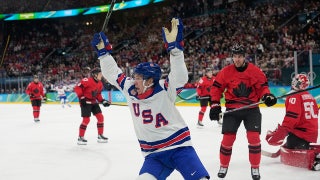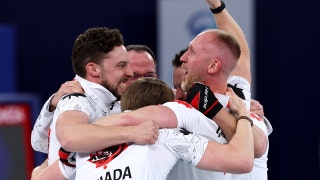Philadelphia, PA (SportsNetwork.com) - There has been a major breakthrough in terms of compensating college athletes. But it has nothing to do with the Northwestern University football team's pursuit of unionization and more to do with how much deep-dish pizza the Wildcats can scarf down when their bellies are feeling empty.
For years athletes, particularly those in football and men's basketball, have been pushing to make pay-for-play a reality, going so far as to sue the NCAA for using player likenesses in video games, but former and current players have yet to see a dime of compensation for making their sports monopolizing cash cows. Just days ago news came out of Indianapolis that detailed a number of new proposals taken up by the NCAA's legislative council, highlighted by requirements to give players unlimited meals and snacks in conjunction with their athletics participation.
You can thank consensus All-America and NCAA Tournament Champion Shabazz Napier for being the voice in the wilderness for hungry athletes. Napier, who was named the Most Outstanding Player of the 2014 Final Four as he helped guide the UConn Huskies to a title for the second time in four years, brought the need for midnight snacks to the forefront in March when speaking with reporters.
"At the end of the day that (scholarships) doesn't cover everything. We do have hungry nights that we don't have enough money to get food and sometimes money is needed. I don't think you should stretch it out to hundreds of thousands of dollars for players ... a lot of times guys don't know how to handle themselves with money."
Napier may go to the extreme with claiming an empty cupboard, but he also understands that handing players the keys to the kingdom isn't the right way to go either.
While Napier's declaration was not the impetus for this movement specifically, it did lend some credibility to the notion that, no matter how successful you and your team might be, there are still some daily struggles that must be addressed on campus.
Other key issues also being voted on included:
- Requirements for having strength and conditioning coaches to be certified from a nationally accredited certification body.
- A school staff member certified in CPR and first aid and arterial external defibrillation to be present at all physical, countable athletic activities.
- Require football players to rest for at least three hours between practices during the preseason. Film review and team meetings will be allowed during this period.
- A reduction in the penalty for testing positive for street drugs, including marijuana, will be reduced to half a season from a full season.
The Division I Board of Directors will meet on April 24 and at that time they will have the final say on how these new requirements/allowances will be addressed.
Not only will scholarship athletes potentially be wheeled out to an endless buffet if Napier's dream comes true, but so too will walk-ons. But I suppose the bigger question might be, do all athletes deserve the same size seat at the table?
Does a coxswain at the University of Maine get to enjoy just as many extra servings of Lobster Rolls as Johnny Manziel does Texas BBQ? Can a substitute sprinter on the women's water polo squad at Division III Occidental College in Los Angeles consume avocados, raisins and pistachios at the same rate that a 300-pound defensive lineman at Temple University, in the heart of Philadelphia, can down cheesesteaks, soft pretzels and scrapple?
Are schools really going to open the doors to the dining halls for all-out gorging, 24/7, for anyone who falls under the guidelines of a student athlete?
I can tell you one thing, if the NCAA decides to lighten the penalty for marijuana use, you better believe there will be a run on late-night munchies in the dorms, with chips and cereal being the two primary food groups.
An underrated Robby Benson was paid to watch the sprinkler systems go on and off while playing star basketball recruit Henry Steele in the movie, "One on One," and while there still might be some odd jobs out there for an aspiring athlete to make cash under the table and below the ever-present NCAA radar, it looks like most athletes will just have to settle for an extra heaping of poi at the University of Hawaii in Honolulu and king crabs at Alaska-Anchorage for the time being.








































